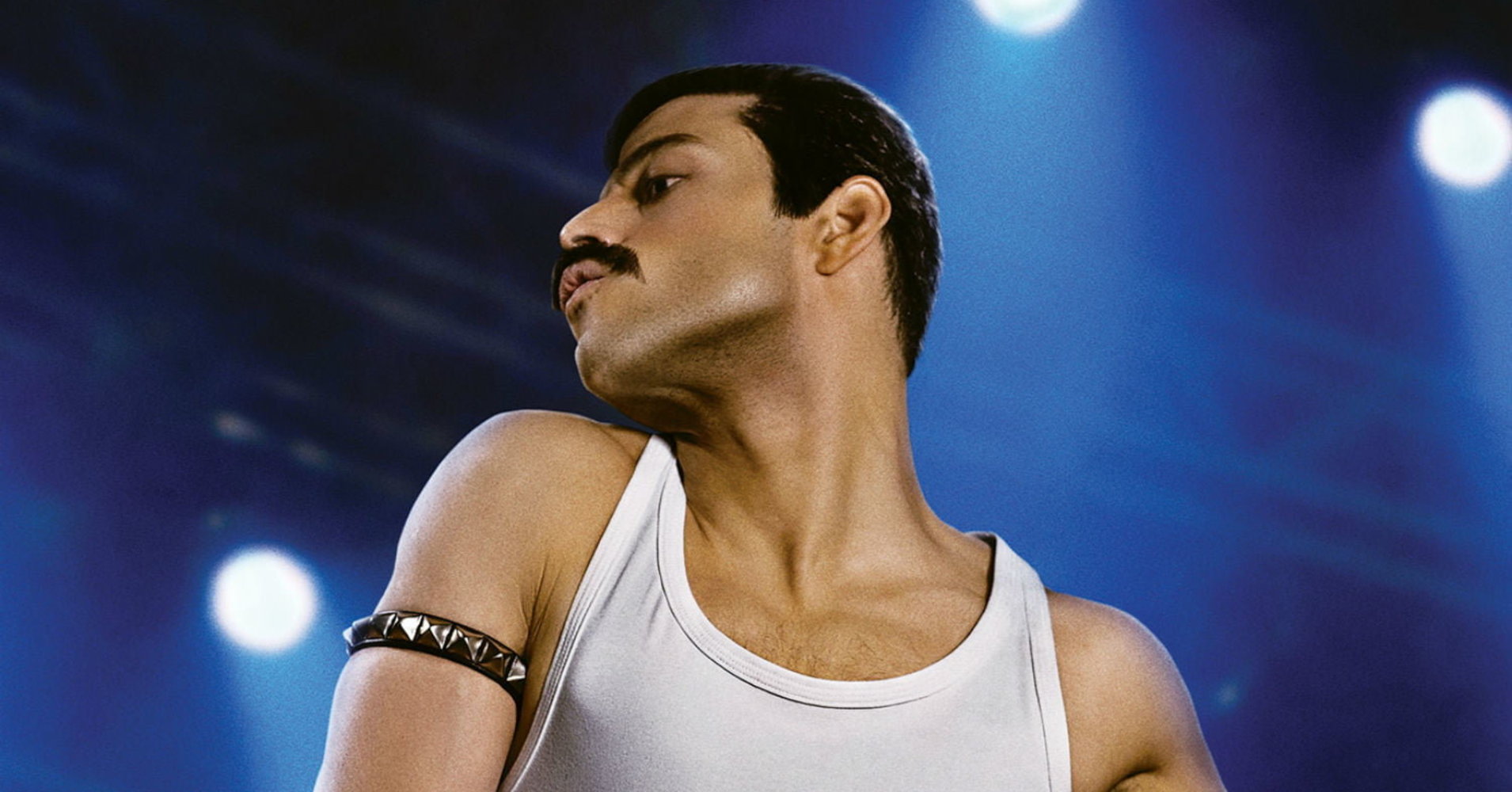[ad_1]
What are the criteria for a successful biopic?
In “Bohemian Rhapsody,” the movie about Freddie Mercury, the question hovers constantly over the surface of what, on paper, should be a solid film interpretation of a man’s life. There’s a stellar cast, a (problematic as hell) director with a strong track record, rights to all of Queen’s chart-sticking songs, and a certain level of accuracy about the band members’ experiences and lives.
The film is one big flashback. It begins in 1985, moments before Mercury (played by Rami Malek) takes the stage at the historic Live Aid concert in London. Just as he’s waiting in the wings, the camera throttles backward in time to the 1970s, when Mercury was just a baggage attendant at Heathrow Airport named Farrokh Bulsara. We watch the wannabe rock star clash with his traditional Parsi parents. We watch him insinuate himself into the band Smile, which later becomes Queen. We watch him become involved with and later engaged to Mary Austin. We watch him shoot to superstardom, concocting classic Queen songs like “Bohemian Rhapsody,” “We Will Rock You” and “Another One Bites the Dust.”
A typical rise-to-fall-to-rise story, Mercury eventually learns that fame isn’t a Band-Aid for self-hate. After a (very) brief moment of realization, we’re rushed back to present day and the triumphant climax of his Live Aid performance. There, Malek-as-Mercury finishes out the film with a 15-minute spot-on impersonation of the late idol.

GQ
The fact that Rami Malek’s performance cannot save this film is a testament to how imperfect it truly is, because Malek himself is near-perfect as the rock ‘n’ roll legend. There are moments when the actor tilts his head just so, or makes a flourish with his hand, and for a flicker of a second it truly seems as though he is Mercury. Or, at the very least, the Mercury that we all think we know. These moments crash up against one another like waves, so that you almost forget what an uneven movie surrounds Malek’s perfect performance. Almost.
Any great biopic, like any great adaptation of a well-known and well-loved work, should strive to capture the essence of its subject. But in order to do that, several things must happen at once. That’s the classic dilemma of the biopic: How do you create a faithful portrait of a person while also remaining entertaining? How do you balance the mandates of a subject’s family and estate with a director’s creative vision? How do you produce something that transcends what fans think they already know about a figure like Freddie Mercury?
“Bohemian Rhapsody” does not know who Freddie Mercury was, and therefore it doesn’t know what it wants to be as a movie. A gritty drama? A camp rock musical fantasy? It’s not the mixing of genres that’s the issue here ― after all, part of Queen’s very appeal was the inability to pin down its sound. The problem is the inconsistency in the film’s tone that creates a distancing effect antithetical to a movie that’s meant to bring us closer to an icon.
It does try. Before the movie came out, fans and critics were concerned by what they perceived to be a trailer that straightwashed Mercury’s queer identity and glossed over his Parsi background.
Others were worried that the movie would understate Mercury’s HIV/AIDS diagnosis and subsequent death. Sacha Baron Cohen, who was reported to be in talks to play Mercury, reportedly backed out of the project in 2017 after clashing with Queen band members Brian May and Roger Taylor, who allegedly wanted the film to focus on the band’s rise to fame rather than Mercury’s struggle with AIDS.
In the end, the movie doesn’t ignore Mercury’s sexual or ethnic identity. Worse, it simply handles them clumsily. It attempts to explore Mercury’s supposed desire to distance himself from his Parsi roots, and his struggle with sexuality amid a long-term relationship with lifelong friend Mary Austin, in one breath. The effect is oversimplifying.
In a 2011 interview with The Telegraph, Mercury’s mother spoke of her son’s deep pride in his Asian heritage. “Freddie was a Parsee and he was proud of that,” said Jer Bulsara, then 89. Perhaps Freddie would disagree. In the film, he insists on never being called by his given name, Farrokh, and rarely acknowledges his ethnicity unprompted. His family members function as hastily drawn stock characters meant to act as foils for his guilt and desire for approval.
Or maybe there was a more complex dynamic at play, for which the film just never made space.

Associated Press
We’ll probably never know. Just as we’ll never know how Mercury’s relationships with men really took shape over the course of his life. “Bohemian Rhapsody” rushes into the singer’s toxic relationship with manager Paul Prenter, then speeds into his partnership with Jim Hutton, with only a fleeting reference to his relationship with Kenny Everett, a British DJ who, though never a lover of Mercury’s, was a key figure in his life.
His relationship with Mary Austin dominates the plot. Hutton, who lived with Mercury before his death, gets crammed into the last 15 minutes so abruptly you could miss its significance altogether. The film technically ends in the year before Mercury and Hutton became partners, but then, why introduce him at all?
The movie officially closes with a beautiful, condensed re-creation of Queen’s legendary set at 1985′s Live Aid, where 1.9 billion people watched Mercury sing some of the band’s most iconic songs. (In the movie, Mercury has been diagnosed with AIDS already ― in real life, he wouldn’t be diagnosed until 1987). The mythic proportions of the event are communicated through sweeping overhead shots of a nearly endless crowd, a camera that weaves in and out and in between the musicians’ legs, across the stage, resting on Malek’s face as he belts “We Are the Champions.”
It’s here ― and only here, really ― that the film truly soars, when Malek’s embodiment of Mercury is on full display, and when the music of Queen does all the work that the movie itself cannot quite do.
Many fans will go into this biopic with bits and pieces of knowledge about Queen, about Freddie Mercury’s life and impact, yet it remains to be seen how many will come out with a deeper understanding of who he really was or what he meant to people. By the time the last number ends and the lights at Wembley Stadium go up, you’re left with a catchy tune in your head, an appreciation for Mercury and Malek’s artistry, but not much else.
[ad_2]
Source link

